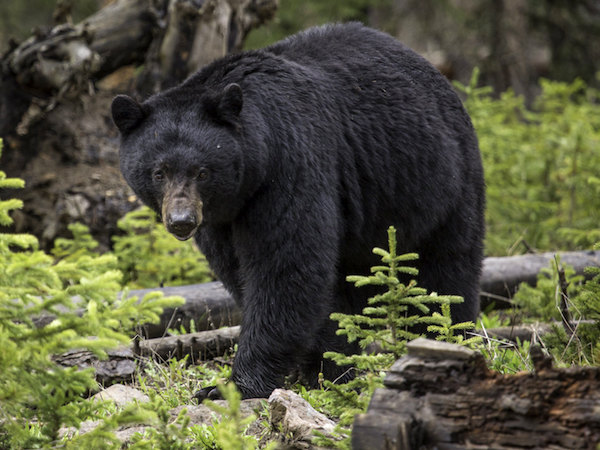Coming Someday to WolfQuest
Less aggressive than grizzlies
Black bears are smaller and much more common than grizzly bears in Yellowstone National Park. They can climb trees well and prefer forested areas. They have good eyesight and hearing and an exceptional sense of smell.
Black bears are not as dangerous as grizzly bears and will likely yield to them and wolves at carcasses. They hibernate in dens from November until late March. When they emerge, they are hungry and will eat just about anything they can find, including spring baby ungulates.

